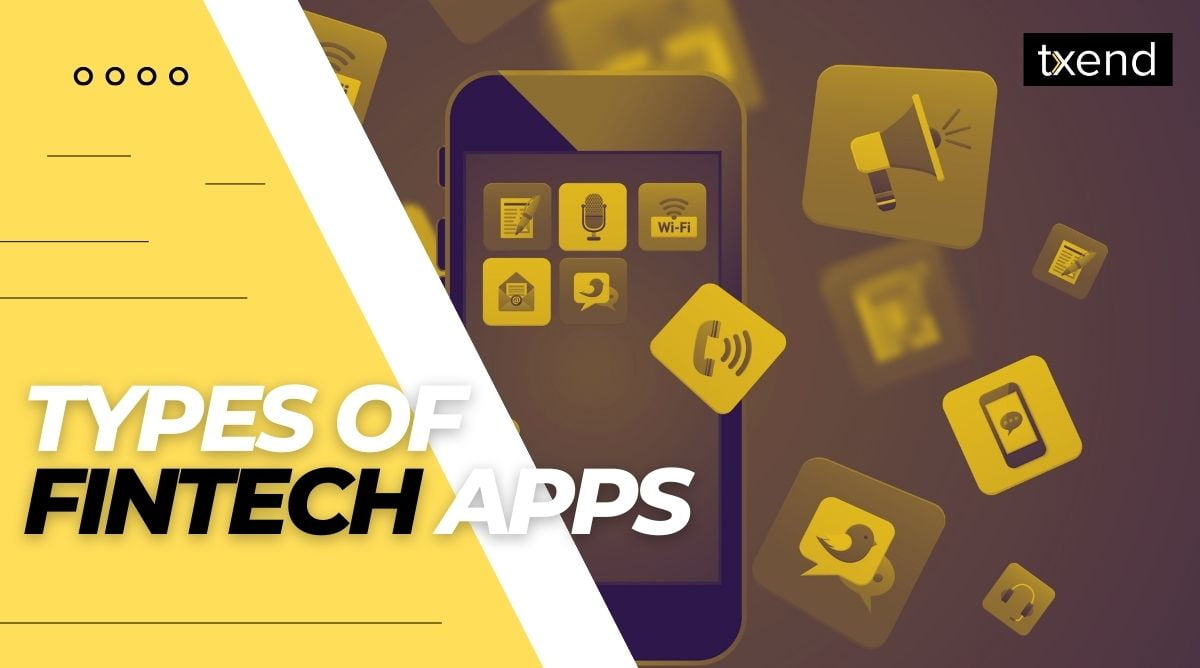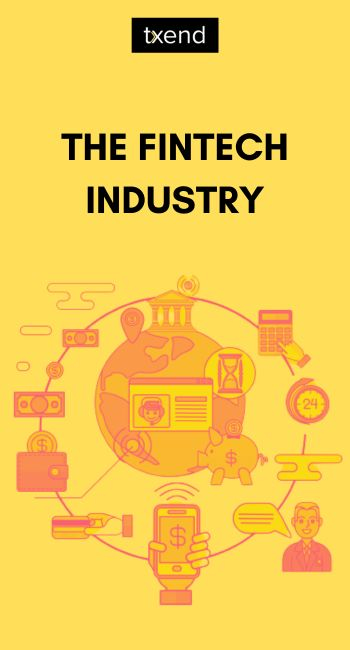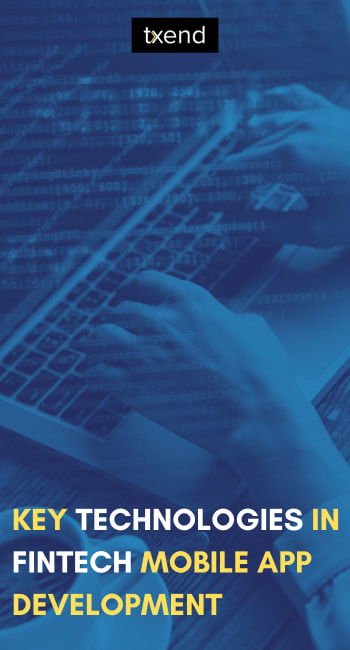
Welcome to the ultimate guide on “Types of Fintech Apps” tailored for the US market. In the ever-evolving financial technology landscape, fintech companies continually innovate to offer a diverse range of fintech applications.
These fintech applications exemplify the power of financial technology, offering solutions that shape how we manage, invest, and transact in an increasingly digital world. In this comprehensive exploration, we will delve into various types of fintech apps, providing insights and examples that showcase the transformative potential of financial technology.
Whether you’re a fintech enthusiast, an investor, or simply curious about the world of fintech applications, this guide will illuminate the key players and trends in the US market, offering a glimpse into the exciting future of financial technology.
Key Takeaways
- Fintech uses technology to improve financial services, typically by automating tasks, reducing costs, and creating new products and services.
- Develop a fintech app to reach a large and diverse customer base, differentiate yourself from competitors, and grow your business rapidly.
- Types of fintech apps include digital banking, investment, payment, trading, insurance, and lending apps.
- Key technologies in fintech mobile app development include cloud computing, big data, AI/ML, blockchain, and mobile development frameworks.
- Fintech company examples in the US include Stripe, PayPal, Coinbase, Robinhood, Chime, SoFi, and Affirm.
- The impact of fintech is making financial services more convenient, affordable, and accessible for consumers and businesses.
Overview Of The Fintech Industry

The fintech industry is rapidly evolving, with new startups constantly emerging. Fintech companies are using technology to revolutionize the financial services industry, making it more efficient, accessible, and affordable for consumers and businesses.
The fintech industry can be broadly divided into the following categories:
Payments:
Fintech companies in this category are developing new and innovative ways to make and receive payments. This includes mobile wallets, peer-to-peer (P2P) payment apps, and blockchain-based payment systems.
Banking:
Fintech companies are also challenging traditional banks by offering digital banking services that are often more convenient and affordable. These services include online bank accounts, mobile banking apps, and digital lending platforms.
Investing:
Fintech companies are making it easier for people to invest their money by offering commission-free trading, robo-advisors, and other investment tools.
Personal Finance Management (PFM):
Fintech companies are also developing PFM tools that help people track their spending, budget their money, and save for their financial goals.
Insurtech:
Fintech companies in the insurtech sector use technology to make insurance more affordable and accessible. This includes online insurance marketplaces, insurtech startups offering their insurance products, and companies using data and analytics to improve the insurance underwriting process.
RegTech:
Fintech companies in the RegTech sector are developing solutions to help businesses comply with financial regulations. This includes software that automates regulatory compliance tasks and solutions that help businesses manage their financial data and risks.
The fintech industry is having a significant impact on the US economy. Fintech companies are creating new jobs, boosting innovation, and making financial services more accessible to all Americans.
Here are some of the key trends driving the growth of the fintech industry:
The rise of digital banking:
More and more Americans use digital banking services, such as mobile banking apps and online bank accounts. This is due to the convenience and affordability of digital banking.
The growth of mobile payments:
Mobile payments are becoming increasingly popular in the US. This is due to the widespread adoption of smartphones and the rise of mobile wallets.
The increasing popularity of peer-to-peer (P2P) payments:
P2P payment apps, such as Venmo and Cash App, are becoming increasingly popular in the US. This is due to the convenience of sending and receiving money from friends and family members instantly.
The rise of blockchain and cryptocurrency:
Blockchain technology is used to develop new and innovative financial products and services. This includes cryptocurrencies, such as Bitcoin and Ethereum, and blockchain-based payment systems.
The increasing use of data and analytics:
Fintech companies are using data and analytics to improve the efficiency and accuracy of financial services. This includes using data to assess creditworthiness, personalize financial advice, and detect fraud.
The fintech industry is still in its early stages of development, but it is already having a major impact on the US economy. Fintech companies are creating new jobs, boosting innovation, and making financial services more accessible to all Americans.
What Does Fintech Do And How Does It Work?
| What Fintech Does | How It Works |
|---|---|
| Innovation in Finance | Fintech introduces technological innovations to enhance and streamline financial services. |
| Digital Transactions | Fintech enables digital transactions, reducing the reliance on traditional banking methods. |
| Accessibility | It enhances accessibility to financial services, reaching underserved populations via smartphones and the internet. |
| Data Analysis | Fintech uses data analytics and AI to provide personalized financial insights and recommendations. |
| Cost Reduction | Automation and digitization lower operational costs, leading to cost-effective financial solutions. |
| Payment Solutions | Fintech offers diverse payment solutions, including mobile wallets, peer-to-peer transfers, and contactless payments. |
| Investment Platforms | It provides investment platforms for individuals to access stocks, cryptocurrencies, and more. |
| Loan Services | Fintech streamlines loan applications, approval processes, and disbursements. |
| Security Measures | Advanced security measures, such as encryption and biometrics, protect user data and transactions. |
| Regulatory Compliance | Fintech companies adhere to financial regulations to ensure trust and compliance with legal requirements. |
Why Develop A Fintech App?
There are many reasons to develop a fintech app for the US market. Here are a few of the most important:
- The US fintech market is vast and growing rapidly. In 2022, the US fintech market was valued at $263 billion, and it is expected to grow to $476 billion by 2026.
- US consumers are increasingly adopting fintech apps. According to a recent survey, 62% of US consumers use at least one fintech app.
- The US fintech market is highly competitive, but there are still opportunities for new entrants. Prominent players like PayPal, Stripe, and Coinbase dominate the US fintech market. However, new entrants still have opportunities to succeed, especially in niche markets.
Here are some additional benefits of developing a fintech app for the US market:
- Fintech apps can help you reach a large and diverse customer base. The US is a large and diverse country, with a population of over 330 million people. Fintech apps can help you reach a wide range of customers, regardless of their demographics or income level.
- Fintech apps can help you differentiate yourself from your competitors. In a competitive market, it is important to differentiate yourself from your competitors. Fintech apps can help you do this by offering innovative features and services that your competitors do not offer.
- Fintech apps can help you grow your business rapidly. The US fintech market is growing rapidly, and fintech apps are well-positioned to capitalize on this growth. By developing a fintech app, you can tap into this growth and grow your business rapidly.
If you are considering developing a fintech app, the US market is a great place to start. The US fintech market is large, growing rapidly, and competitive. However, new entrants still have opportunities to succeed, especially in niche markets.
10 Types Of Fintech Apps
| Type of Fintech | Description | Fintech Products in the USA |
|---|---|---|
| Digital Banking | Digital banks offer online-only accounts with features like mobile check deposit and fee-free banking. | Chime, Varo, Ally Bank |
| Payments and Transfers | Facilitating secure digital payments, including peer-to-peer transfers, bill payments, and contactless payments. | PayPal, Venmo, Cash App, Zelle |
| Investment Platforms | Online platforms enabling users to invest in stocks, ETFs, cryptocurrencies, and robo-advisory services. | Robinhood, Coinbase, Wealthfront |
| Insurance Tech (Insurtech) | Modernizing insurance by offering digital policies, claims processing, and comparison tools. | Lemonade, Oscar Health, Root |
| Regtech (Regulatory Technology) | Assisting financial institutions with compliance, risk management, and regulatory reporting. | ComplyAdvantage, Alloy, Chainalysis |
| Personal Finance Management | Tools for budgeting, expense tracking, and financial planning to help users manage their money effectively. | Mint, YNAB (You Need a Budget), Personal Capital |
| Real Estate Tech (PropTech) | Innovations in real estate, including property listings, homebuying platforms, and property management tools. | Zillow, Redfin, Airbnb (Short-Term Rentals) |
| Crowdfunding | Platforms allowing individuals and businesses to raise funds from a large pool of investors or donors. | Kickstarter, Indiegogo, GoFundMe |
| Blockchain and Cryptocurrency | Leveraging blockchain technology for digital currencies, decentralized finance (DeFi), and more. | Ethereum, Chainlink, Aave |
Key Technologies In Fintech Mobile App Development
The following are some of the key technologies used in fintech mobile app development in the US:

Cloud Computing:
Cloud computing platforms such as Amazon Web Services (AWS), Microsoft Azure, and Google Cloud Platform (GCP) are widely used by fintech companies to develop and deploy their mobile apps. Cloud computing offers several advantages, including scalability, security, and cost-effectiveness.
Big data and analytics:
Fintech companies use big data and analytics to collect and analyze customer data to develop personalized financial products and services. This data can also be used to improve fraud detection and risk management.
Artificial intelligence (AI) and machine learning (ML):
AI and ML are being used by fintech companies to automate various tasks, such as customer service, fraud detection, and investment advice.
Blockchain:
Blockchain is a distributed ledger technology that fintech companies are using to develop new financial products and services, such as digital currencies and smart contracts.
Mobile Development Frameworks:
Mobile development frameworks such as Flutter and React Native are used by fintech companies to develop cross-platform mobile apps. Cross-platform apps can be developed for both iOS and Android devices, which can save time and money.
In addition to these key technologies, fintech companies also use various other technologies, such as biometrics, data encryption, and two-factor authentication to ensure the security and privacy of their users’ data.
It is important to note that the fintech industry constantly evolves, and new technologies are always emerging. Fintech companies need to be able to adapt to these changes to stay competitive and offer their users the best possible experience.
Fintech Company Examples
Here are some notable examples of fintech companies in the USA:
Square:
Known for its point-of-sale solutions and mobile payment services, Square has expanded to offer small business lending and financial tools.
PayPal:
A pioneer in online payments, PayPal provides a wide range of digital payment solutions, including PayPal, Venmo, and Braintree.
Robinhood:
Robinhood offers commission-free trading of stocks, cryptocurrencies, and options, making investing accessible to a broader audience.
Stripe:
Stripe provides online payment processing for e-commerce businesses, startups, and platforms, offering seamless payment solutions.
Coinbase:
A leading cryptocurrency exchange, Coinbase allows users to buy, sell, and store cryptocurrencies like Bitcoin, Ethereum, and more.
SoFi:
Social Finance (SoFi) offers personal finance services, including student loan refinancing, investing, and mortgage services.
Lemonade:
Lemonade is a digital insurance company that uses AI to provide renters, homeowners, and pet insurance.
Chime:
Chime is a neobank that offers fee-free banking services, including checking and savings accounts and early access to paychecks.
Betterment:
Betterment is a robo-advisory platform that helps users invest in a diversified portfolio of ETFs based on their goals and risk tolerance.
Plaid:
Plaid provides APIs for financial data connections, enabling fintech apps to access bank account information securely.
Affirm:
Affirm offers point-of-sale financing, allowing consumers to make purchases and pay over time with transparent terms.
Credit Karma:
Credit Karma provides free credit score monitoring, financial advice, and personalized recommendations for financial products.
This is a small sample of the many fintech companies in the USA today. The fintech industry is constantly evolving, and new companies are always emerging. It is important to note that the fintech industry has challenges. Fintech companies often face regulatory hurdles and may need help competing with established financial institutions. However, the fintech industry is also rapidly growing, and it offers new opportunities for consumers and businesses alike.
The Impact Of Financial Technology Companies
Financial technology companies, or fintech companies, are having a significant impact on the financial services industry in the USA. Fintech companies are using technology to develop new financial products and services that are more convenient, affordable, and accessible than traditional financial services.

Here are some of the key ways that fintech companies are impacting the financial services industry in the USA:
- Making financial services more convenient: Fintech companies are making it easier for people to manage their finances by offering digital banking apps, mobile payment apps, and other convenient financial services.
- Making financial services more affordable: Fintech companies are often more affordable than traditional financial institutions because they have lower overhead costs and are more efficient.
- Making financial services more accessible: Fintech companies are making financial services more accessible to people underserved by traditional financial institutions, such as people with low incomes or bad credit.
Fintech companies are also having a positive impact on the US economy. Fintech companies are creating new jobs, boosting economic growth, and helping to create a more inclusive financial system.
Here are some specific examples of the impact of fintech companies in the USA:
- Fintech companies are making it easier for people to start and grow businesses. For example, fintech companies offer small business loans, online payment processing, and other financial services that can help small businesses succeed.
- Fintech companies are making it easier for people to invest. For example, fintech companies offer investment apps that make it easy for people to invest in stocks, bonds, and other assets.
- Fintech companies are making it easier for people to save for retirement. For example, fintech companies offer robo-advisors to help people create and manage retirement savings plans.
Overall, fintech companies are having a positive impact on the financial services industry and the US economy. Fintech companies are making financial services more convenient, affordable, and accessible and helping to create a more inclusive financial system.
How Can Txend Help?
Txend is a fintech app development company that can help you develop a fintech app from start to finish. Txend has a team of experienced fintech developers and designers who can help you create a secure, user-friendly, and innovative fintech app.
Txend offers a variety of services to help you develop your fintech app, including:
- Strategy and consulting: Txend can help you develop a strategy for your fintech app and choose the right technologies and features.
- Design and development: Txend can design and develop your fintech app from scratch, or they can help you integrate new features into your existing fintech app.
- Testing and deployment: Txend can test your fintech app to ensure it is secure and reliable. They can also help you deploy your fintech app to the app store or Google Play.
Txend has a proven track record of success in developing fintech apps. Txend has developed fintech apps for various clients.
Here are some of the benefits of working with Txend to develop your fintech app:
- Expertise: Txend has a team of experienced fintech developers and designers who can help you create a secure, user-friendly, and innovative fintech app.
- Resources: Txend has the resources and expertise to help you develop your fintech app from start to finish.
- Support: Txend provides ongoing support to its clients after their fintech app is deployed.
If you are considering developing a fintech app, Txend is an excellent option. Txend has the expertise, resources, and support to help you develop a successful fintech app.
Frequently Asked Questions
Some common examples of fintech applications that consumers and businesses widely use include:
- Digital banking apps (e.g., Chime, Varo, Ally Bank)
- Investment apps (e.g., Robinhood, Acorns, Stash)
- Personal finance management apps (e.g., Mint, Personal Capital, YNAB)
- Payment apps (e.g., PayPal, Venmo, Zelle)
- Business accounting software (e.g., QuickBooks, Xero, FreshBooks)
- Crowdfunding platforms (e.g., Kickstarter, Indiegogo, GoFundMe)
- Peer-to-peer lending platforms (e.g., LendingClub, Prosper, Upstart)
- Insurance apps (e.g., Lemonade, State Farm, Geico)
Fintech companies develop and innovate new types of fintech applications by:
- Leveraging new technologies such as artificial intelligence, machine learning, and blockchain.
- Collaborating with financial institutions and other businesses to create new products and services.
- Conducting market research to understand the needs of consumers and businesses.
- Gathering feedback from users to improve their existing products and services.
The key benefits of using different types of fintech applications include:
- Convenience: Fintech apps are typically easy to use and can be accessed from anywhere with an internet connection.
- Affordability: Fintech apps are often more affordable than traditional financial services.
- Accessibility: Fintech apps can make financial services more accessible to people underserved by traditional financial institutions.
- Efficiency: Fintech apps can help users to save time and money by automating tasks such as bill payments and investment management.
- Personalization: Fintech apps can provide users with personalized financial advice and recommendations.
Yes, there are a number of security considerations and best practices that users should be aware of when using fintech applications to protect their financial data. These include:
- Choosing a reputable fintech app provider.
- Using strong passwords and enabling two-factor authentication.
- Keeping your fintech apps up to date.
- Being careful about what information you share with fintech apps.
- Monitoring your financial accounts for unauthorized activity.
By following these best practices, users can help to protect their financial data when using fintech applications.
Conclusion
Fintech apps are revolutionizing the way we manage our finances. They offer many benefits, including convenience, affordability, and accessibility. Fintech apps can help us to save money, invest more wisely, and manage our debt more effectively.
There are many different types of fintech apps available, each with its unique features and benefits. Some of the most popular types of fintech apps include digital banking apps, investment apps, personal finance management apps, and payment apps.
Fintech companies are playing an increasingly important role in the US financial system. They are offering innovative new products and services that are making financial services more accessible and affordable for consumers and businesses alike.
If you are looking for ways to improve your financial management, fintech apps are a great option to consider. There is a fintech app available to meet almost any financial need.
Here are some tips for choosing the right fintech app for you:
- Consider your financial needs and goals. What do you need the app for? What features are important to you?
- Read reviews of different fintech apps to see what other users have to say.
- Compare the fees and interest rates charged by different fintech apps.
- Make sure to choose a fintech app that is secure and reputable.
Fintech apps are a valuable tool for anyone who wants to improve their financial management. By choosing the right fintech app for your needs, you can save money, invest more wisely, and manage your debt more effectively.
